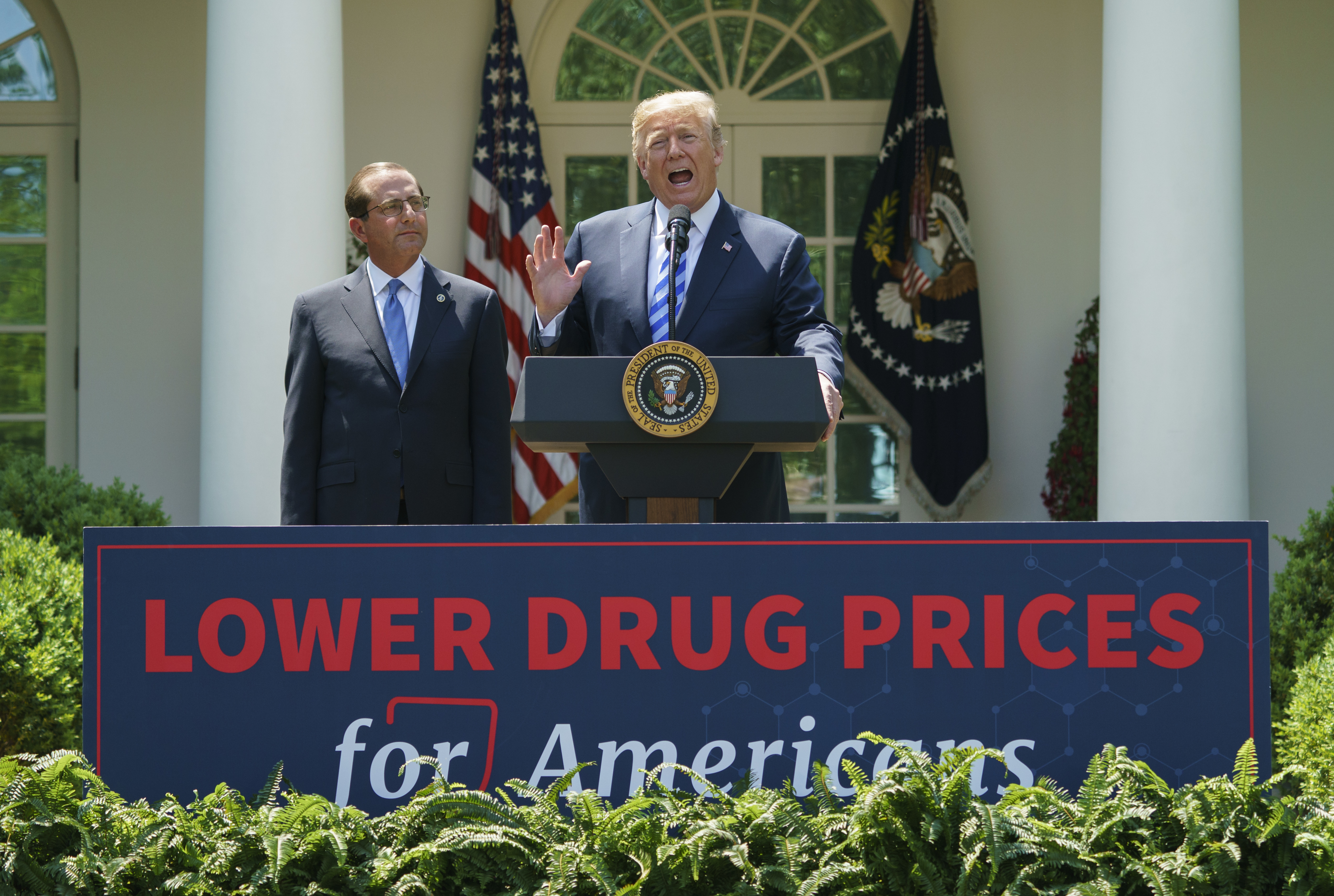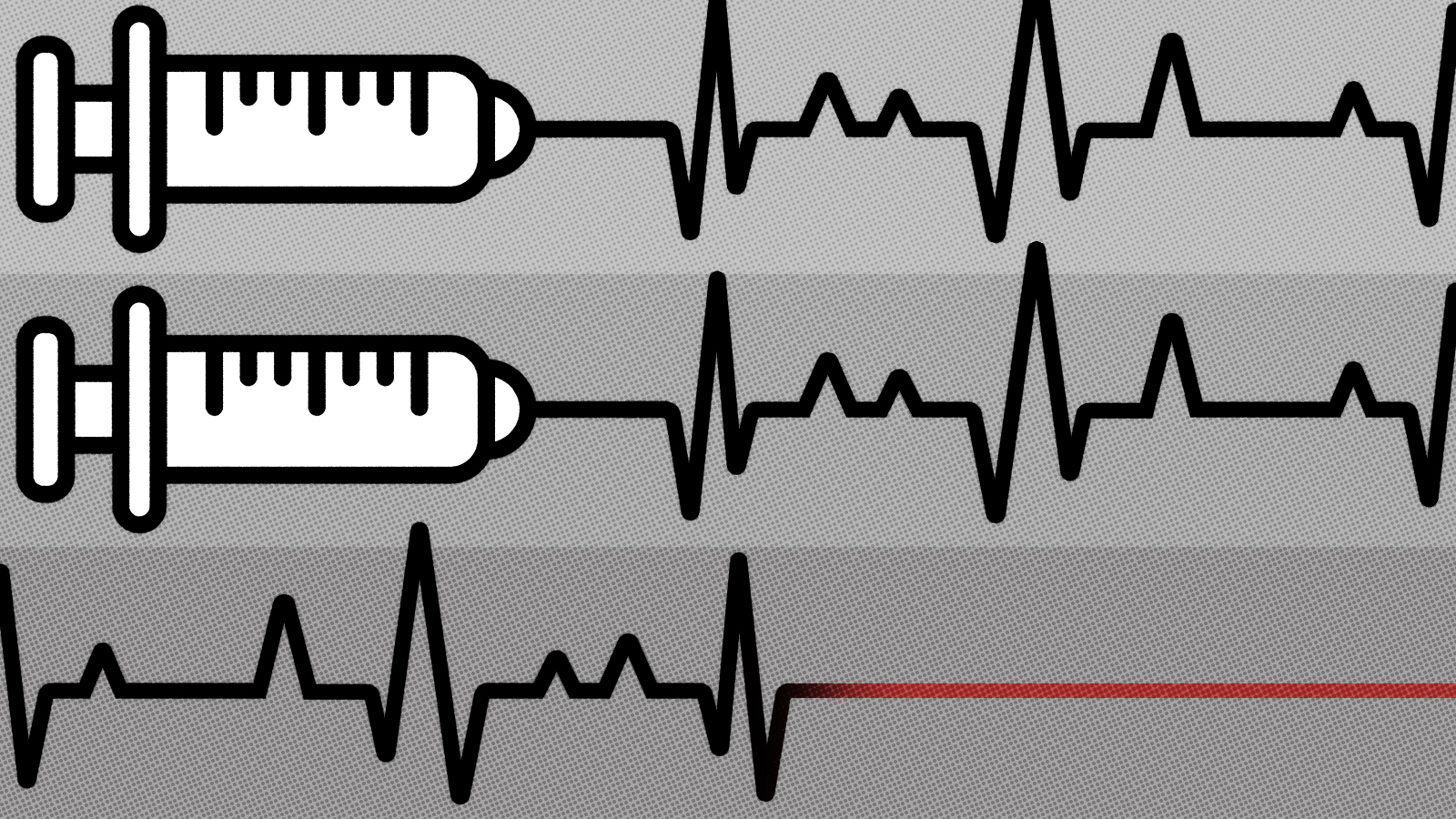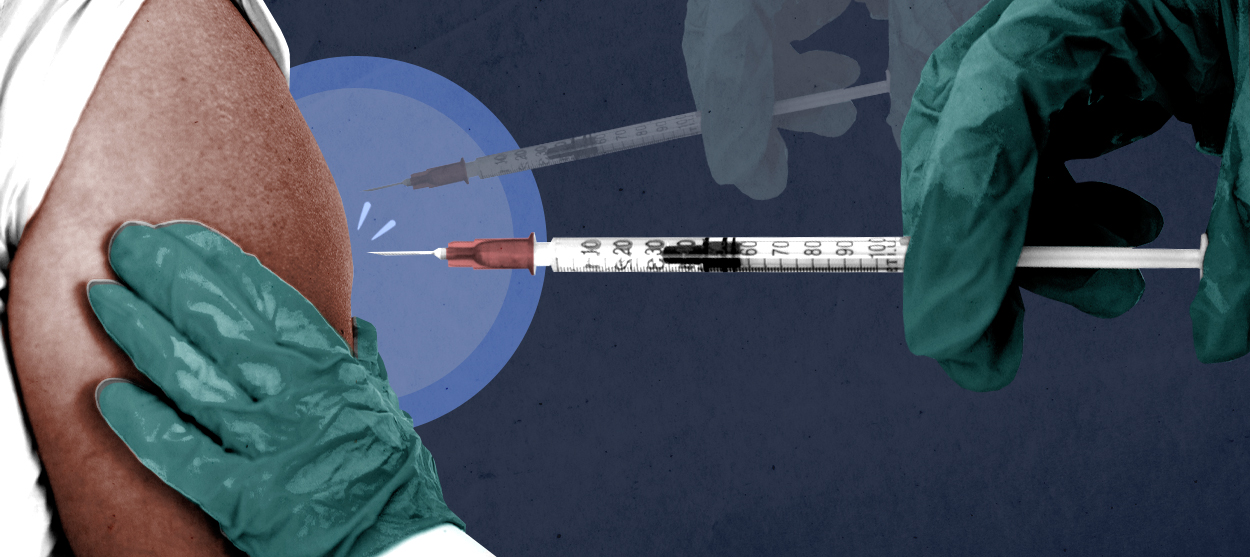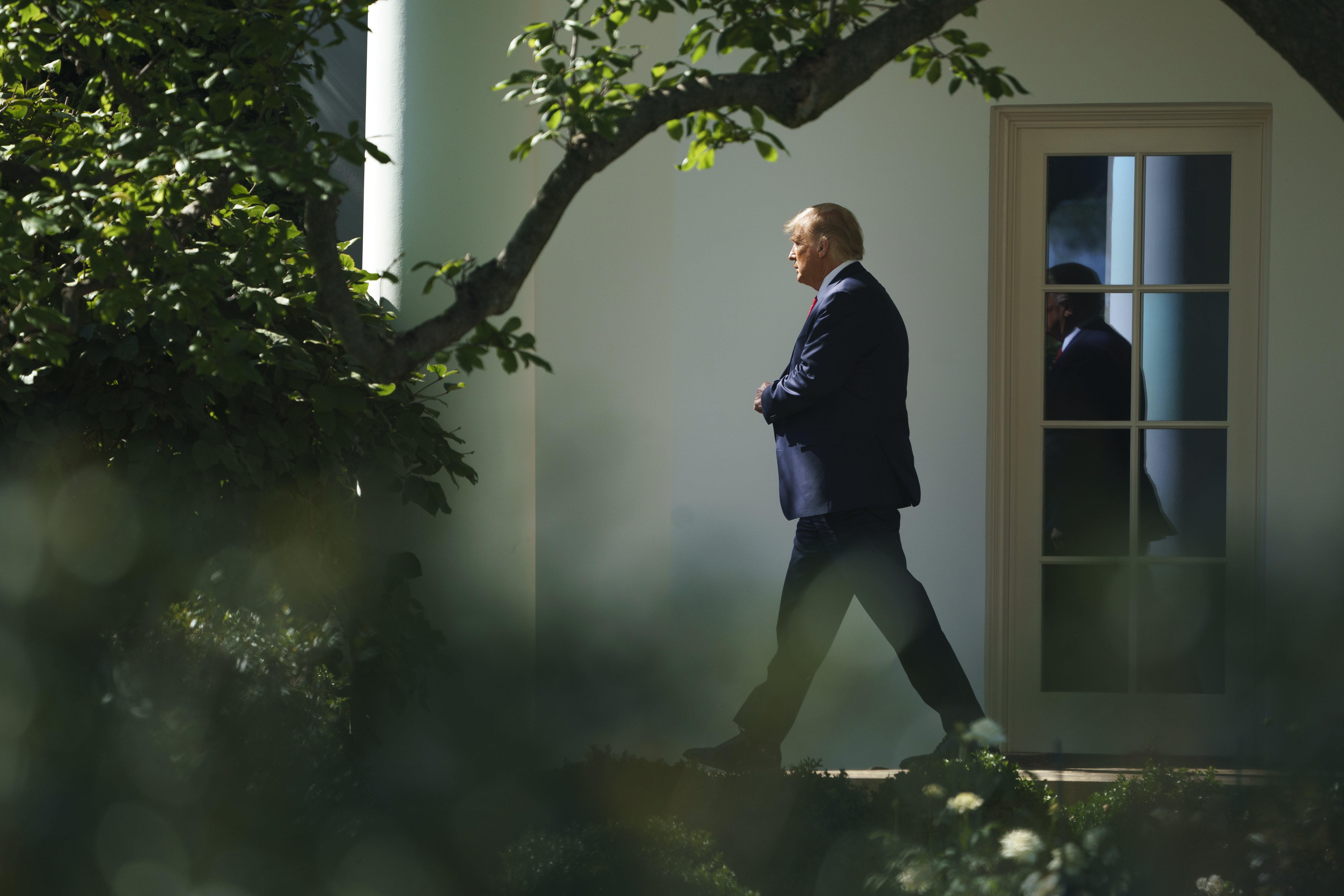Trump's plan to lower drug prices
The president unveiled a much-anticipated "blueprint" to lower drug costs. Will it work?

A free daily email with the biggest news stories of the day – and the best features from TheWeek.com
You are now subscribed
Your newsletter sign-up was successful
The smartest insight and analysis, from all perspectives, rounded up from around the web:
President Trump has "the power to sink pharmaceutical stocks" with a single tweet, said Katie Thomas at The New York Times. But when he unveiled a much-anticipated "blueprint" to lower drug costs last week, Trump "largely avoided the issues the industry fears the most." Gone were proposals that candidate Trump loudly supported in 2016 — namely, to allow Medicare to directly negotiate drug prices and permit Americans to import cheaper drugs from Canada. In their place were "light on detail" proposals to allow Medicare Part D plans to pay different amounts for the same drug, depending on the illness, and to permit patients to keep a portion of the rebates that are normally pocketed by insurers. Trump also vaguely suggested that countries with lower drug costs were "free-riding" off American innovation and should be forced to pay more. This speech was a "big win" for Big Pharma, said Vann Newkirk at The Atlantic. Nothing Trump said "challenged the pharmaceutical industry or the direct role it plays in setting prices."
On the contrary, said David Catron at The American Spectator: This plan is "eminently sensible." To curb patients' out-of-pocket expenses, Trump is vowing to crack down on pharmacy benefit managers (PBMs), firms that negotiate prices between insurers and drug manufacturers. These middlemen manage the rebates that drug companies use to entice insurers to offer their drugs, and too often the PBMs keep portions of these rebates for themselves instead of passing them on to consumers. The president has also proposed eliminating the "Pharmacist Gag Rule," which is typically inserted into contracts by PBMs to prohibit pharmacists from telling patients when it's cheaper to pay with cash instead of using their insurance. "No one, including the president, believes that Big Pharma is as pure as the driven snow." But he knows soaring drug prices "can't be solved with panaceas like re-importation or government price controls." It's also not true that Medicare won't be allowed to negotiate prices, said Avik Roy at Forbes. Trump has proposed giving insurers more flexibility to design their list of "protected class" drugs to drive better deals. They also may get the power to negotiate on drugs that are administered in doctor's offices. These are more nuanced approaches than liberals would prefer, but if enacted, they would "represent a sea change in pharmaceutical pricing policy."
The Week
Escape your echo chamber. Get the facts behind the news, plus analysis from multiple perspectives.

Sign up for The Week's Free Newsletters
From our morning news briefing to a weekly Good News Newsletter, get the best of The Week delivered directly to your inbox.
From our morning news briefing to a weekly Good News Newsletter, get the best of The Week delivered directly to your inbox.
Actually, "there is little in Trump's plan that is likely to make a big difference in the near term," said Max Nisen at Bloomberg. The Medicare Part D changes will only "slightly lower costs" for the government and seniors, and the PBM reforms will do little more than make good sound bites on the campaign trail. The truth is, in order to gain real leverage over drug companies, the government would need "to be able to refuse Medicare coverage of certain medications and firmly steer patients to cheaper treatments." Such restrictions would be wildly unpopular. "Americans have come to expect unfettered access to an ever-expanding roster of medicines, without having to pay a lot for it." Until we accept the trade-offs needed to fix the system, "drug pricing rhetoric will continue to be fiery, but policy will be milquetoast."
A free daily email with the biggest news stories of the day – and the best features from TheWeek.com
-
 Political cartoons for February 16
Political cartoons for February 16Cartoons Monday’s political cartoons include President's Day, a valentine from the Epstein files, and more
-
 Regent Hong Kong: a tranquil haven with a prime waterfront spot
Regent Hong Kong: a tranquil haven with a prime waterfront spotThe Week Recommends The trendy hotel recently underwent an extensive two-year revamp
-
 The problem with diagnosing profound autism
The problem with diagnosing profound autismThe Explainer Experts are reconsidering the idea of autism as a spectrum, which could impact diagnoses and policy making for the condition
-
 Do unvaccinated COVID patients deserve scarce care? A doctor weighs in.
Do unvaccinated COVID patients deserve scarce care? A doctor weighs in.The Explainer Justice, judgment, and the last ICU bed
-
 How to vaccinate the anti-vaxxers
How to vaccinate the anti-vaxxersThe Explainer Instead of blaming people for not doing the right thing, let's focus on eliminating the obstacles to vaccination that still remain
-
 The U.S. could double its COVID-19 vaccine availability overnight. What's the holdup?
The U.S. could double its COVID-19 vaccine availability overnight. What's the holdup?The Explainer How the FDA could approve a more efficient vaccine rollout
-
 The October Surprise nobody wanted
The October Surprise nobody wantedThe Explainer Trump has COVID-19. Really, 2020?
-
 Life is worth living
Life is worth livingThe Explainer What's driving America's rising suicide rate?
-
 Social workers are masters at de-escalation. Here's what the police can learn from them.
Social workers are masters at de-escalation. Here's what the police can learn from them.The Explainer Knowing how to peacefully resolve conflict, rather than exacerbate it, can save lives
-
 Settling in for the long pandemic
Settling in for the long pandemicThe Explainer Life won't be back to "normal" anytime soon
-
 Sports reveal how much America is trailing the rest of the world
Sports reveal how much America is trailing the rest of the worldThe Explainer MLS and other American leagues are stumbling through their pandemic restart plans